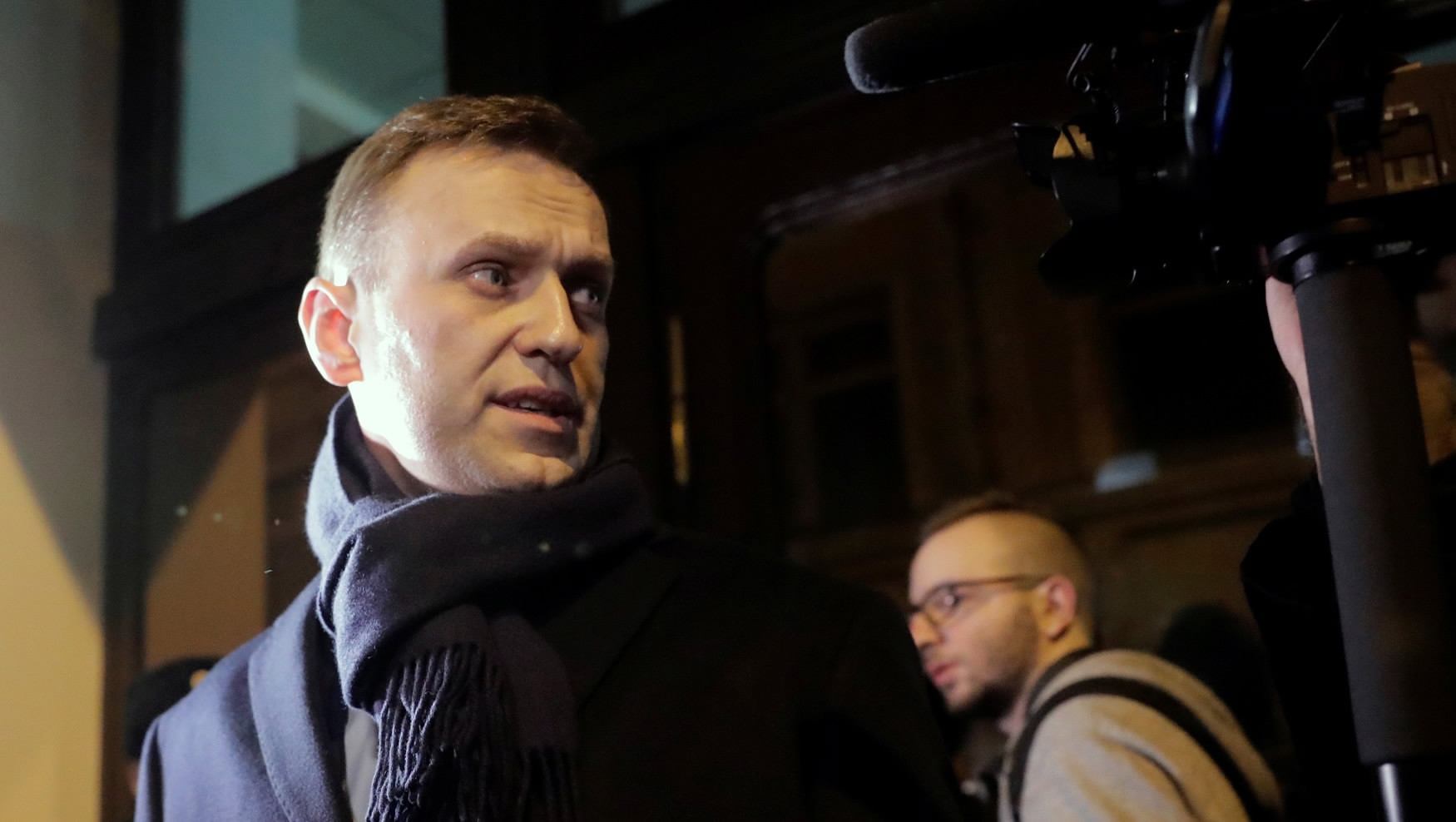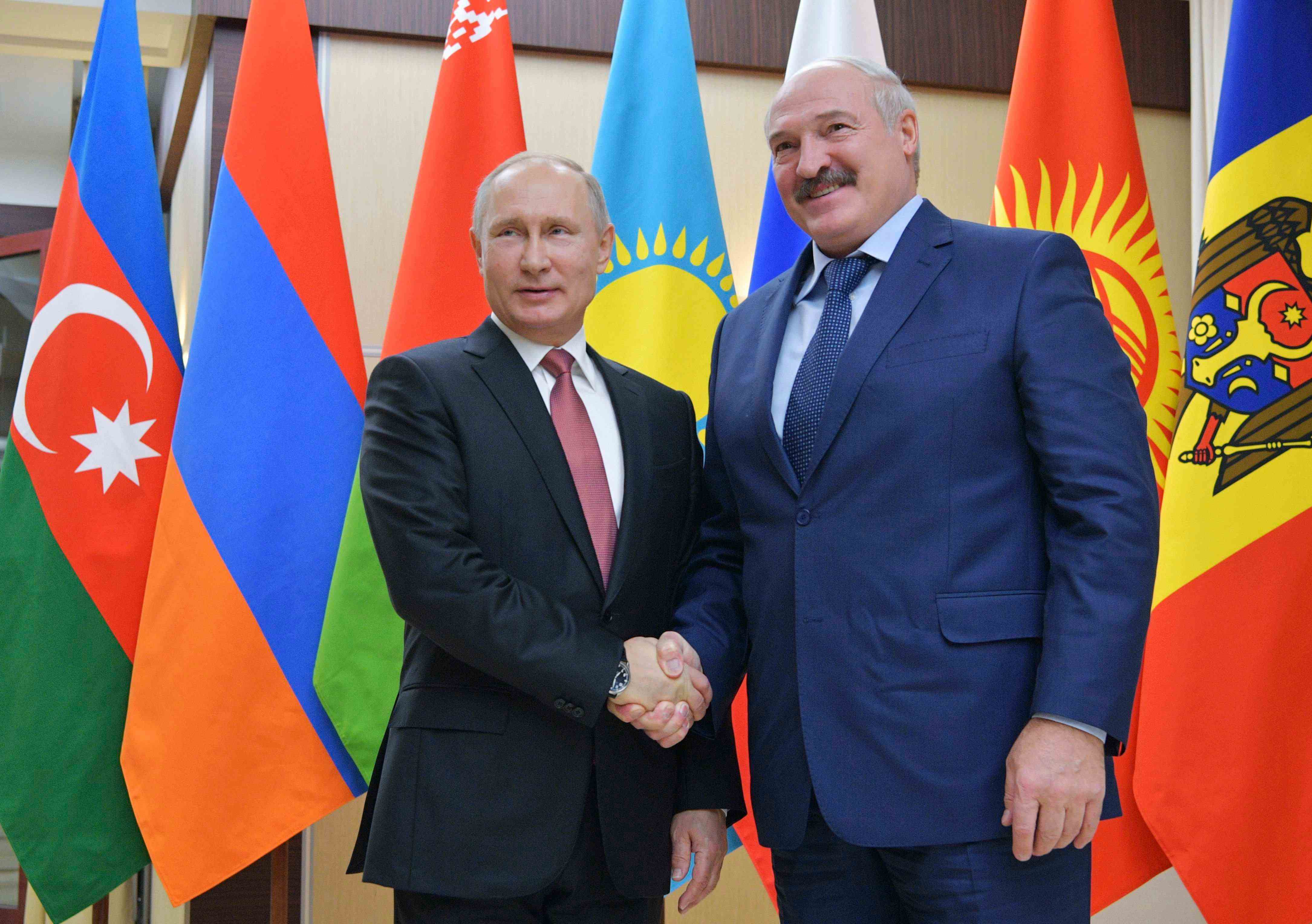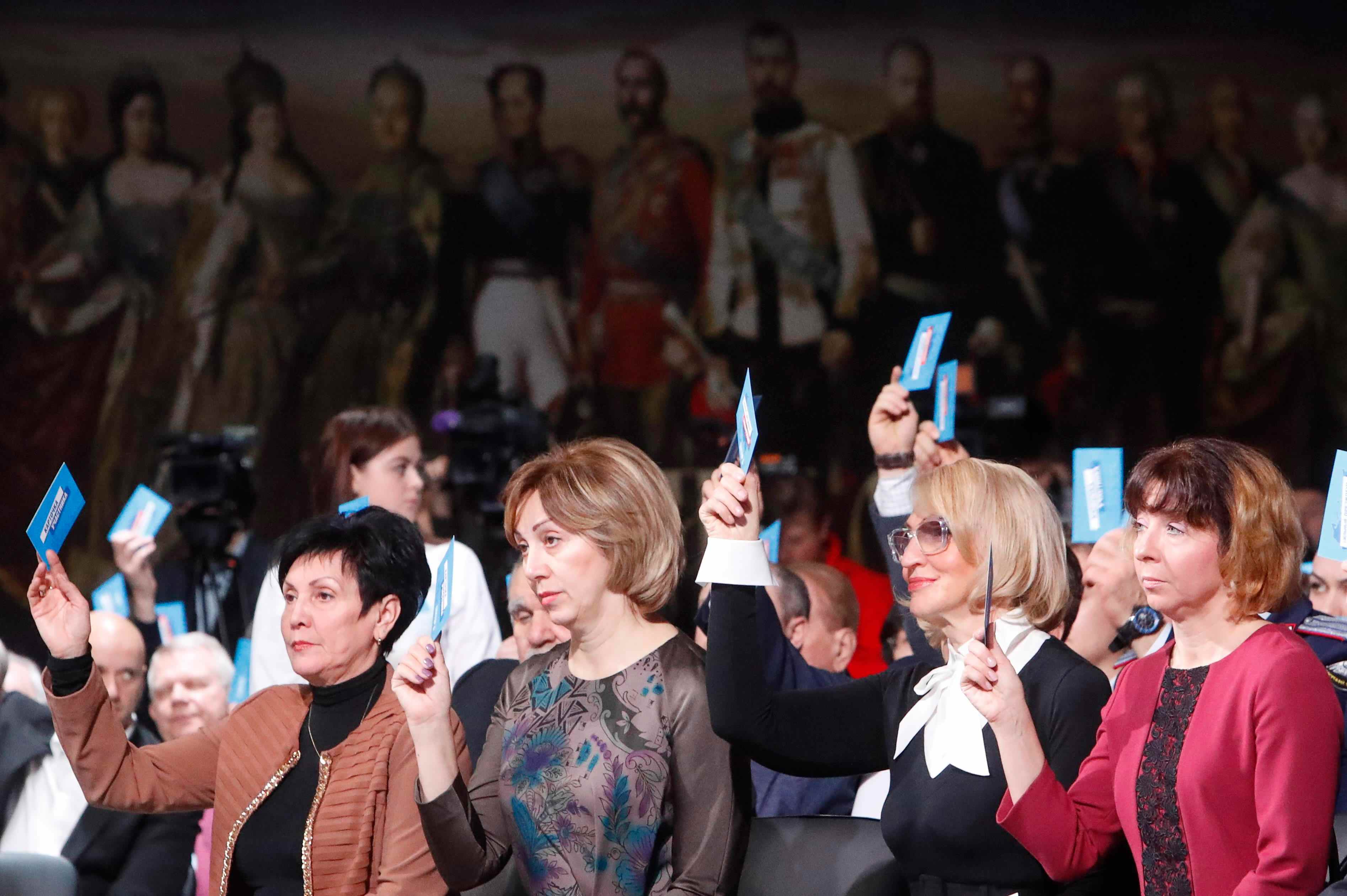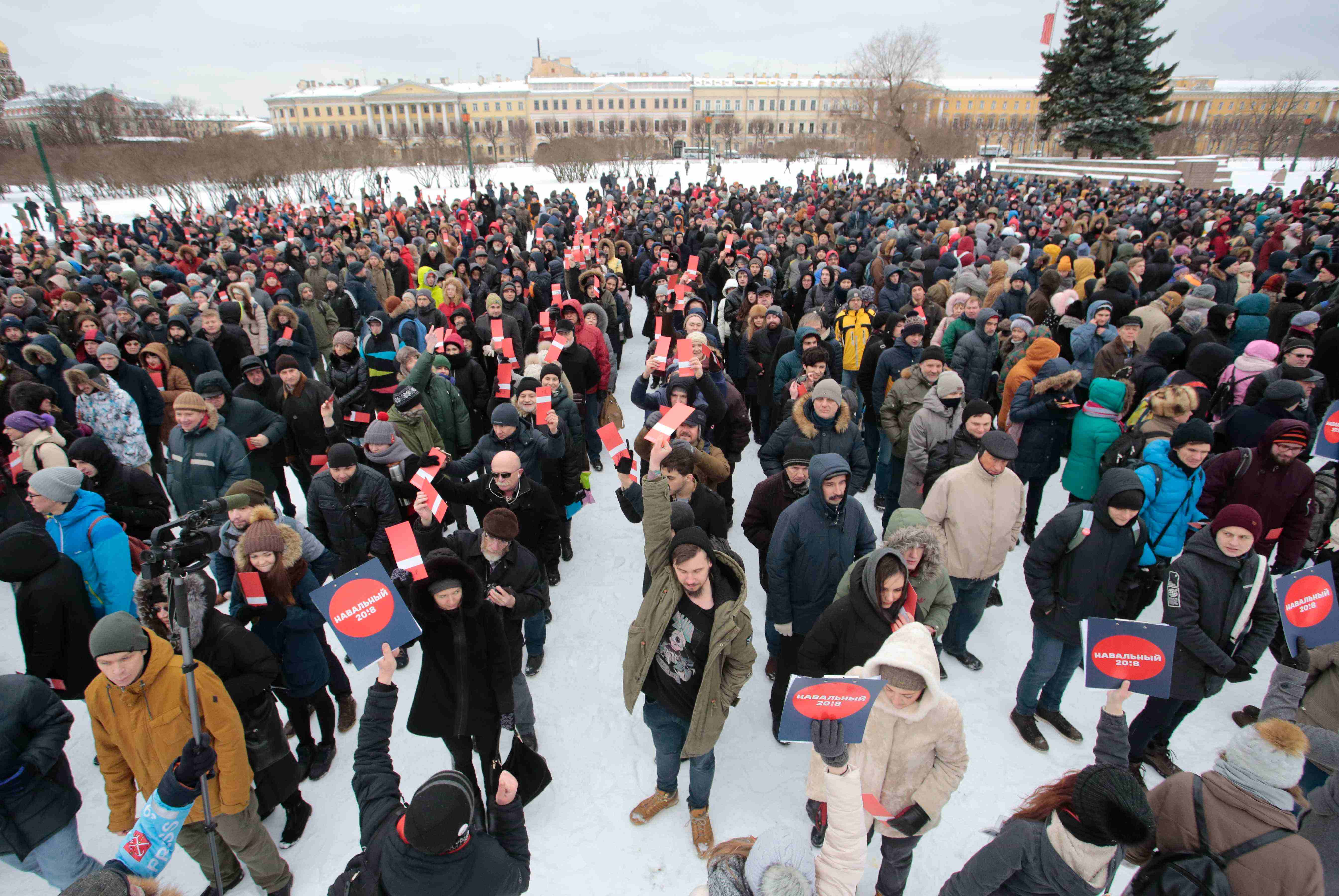
Politics
11:56, 27-Dec-2017
Kremlin questions legality of Navalny election boycott
By Sim Sim Wissgott

A call by Russian opposition leader Alexei Navalny to boycott upcoming elections should be checked for its legality, the Kremlin said on Tuesday, as top figures from the world of politics, sports and the arts rallied around President Vladimir Putin’s candidacy.
Navalny was banned from running on Monday by Russia’s central election commission, citing a suspended prison sentence against him.
The 41-year-old lawyer, who has insisted the embezzlement sentence was politically motivated, hit back with a call for a “vote strike” of the March 18 presidential ballot, which is widely expected to see Putin re-elected for another six-year term.

Russian President Vladimir Putin (L) welcomes his Belarussian counterpart
Alexander Lukashenko before a meeting of heads of the Commonwealth of
Independent States (CIS) outside Moscow, Russia December 26, 2017.
/Reuters Photo
Russian President Vladimir Putin (L) welcomes his Belarussian counterpart Alexander Lukashenko before a meeting of heads of the Commonwealth of Independent States (CIS) outside Moscow, Russia December 26, 2017. /Reuters Photo
"The calls for a boycott will require scrupulous study, to see whether or not they comply with the law," Kremlin spokesman Dmitry Peskov told reporters.
Such a move could lay the ground for police action against Navalny and his supporters, according to media reports. Past rallies have already been broken up by the authorities.
High-profile supporters – from politicians to celebrities and top athletes – formally nominated Putin to run at an event in Moscow on Tuesday.
Putin, who has dominated Russian politics since 2000 and is due to run as an independent, is expected to submit the paperwork to formalize his candidacy in the next few days.
Opinion polls currently show him with a comfortable lead.

Members of the initiative group to nominate Vladimir Putin as a candidate in
the 2018 presidential election attend a meeting in Moscow, Russia December 26,
2017. /Reuters Photo
Members of the initiative group to nominate Vladimir Putin as a candidate in the 2018 presidential election attend a meeting in Moscow, Russia December 26, 2017. /Reuters Photo
Putin’s supporters see the president as a father figure who has returned Russia to its former glory, in part thanks to foreign intervention in Ukraine and Syria.
“Today and in the nearest future, there is no alternative (to Putin),” Russian State Duma lawmaker Viktor Vodolatskiy said at the Moscow event.
“He is the only person who has succeeded in building a bipolar world, not the unipolar one America is trying to build, and who has made Russia a strong and powerful state," Vodolatskiy added.
Navalny, one of Putin’s most prominent critics, has said however that the president’s support is based on a political system and state media that do not allow for genuine debate or dissent.
The Russian opposition leader has been jailed on three occasions already this year for organizing protests and rallies.

Supporters of Alexei Navalny vote during a meeting
to uphold his bid for presidential candidate, in St. Petersburg, Russia, December
24, 2017. /Reuters Photo
Supporters of Alexei Navalny vote during a meeting to uphold his bid for presidential candidate, in St. Petersburg, Russia, December 24, 2017. /Reuters Photo
On Tuesday, the EU criticized the latest ban against him.
"(It) casts a serious doubt on political pluralism in Russia and the prospect of democratic elections next year," the EU's External Action Service said in a statement.
"Politically-motivated charges should not be used against political participation," it stated.
Peskov however dismissed the comments, arguing that "the fact that one of the would-be candidates is not taking part has no bearing on the election's legitimacy."
(With input from agencies)
5797km

SITEMAP
Copyright © 2018 CGTN. Beijing ICP prepared NO.16065310-3
Copyright © 2018 CGTN. Beijing ICP prepared NO.16065310-3